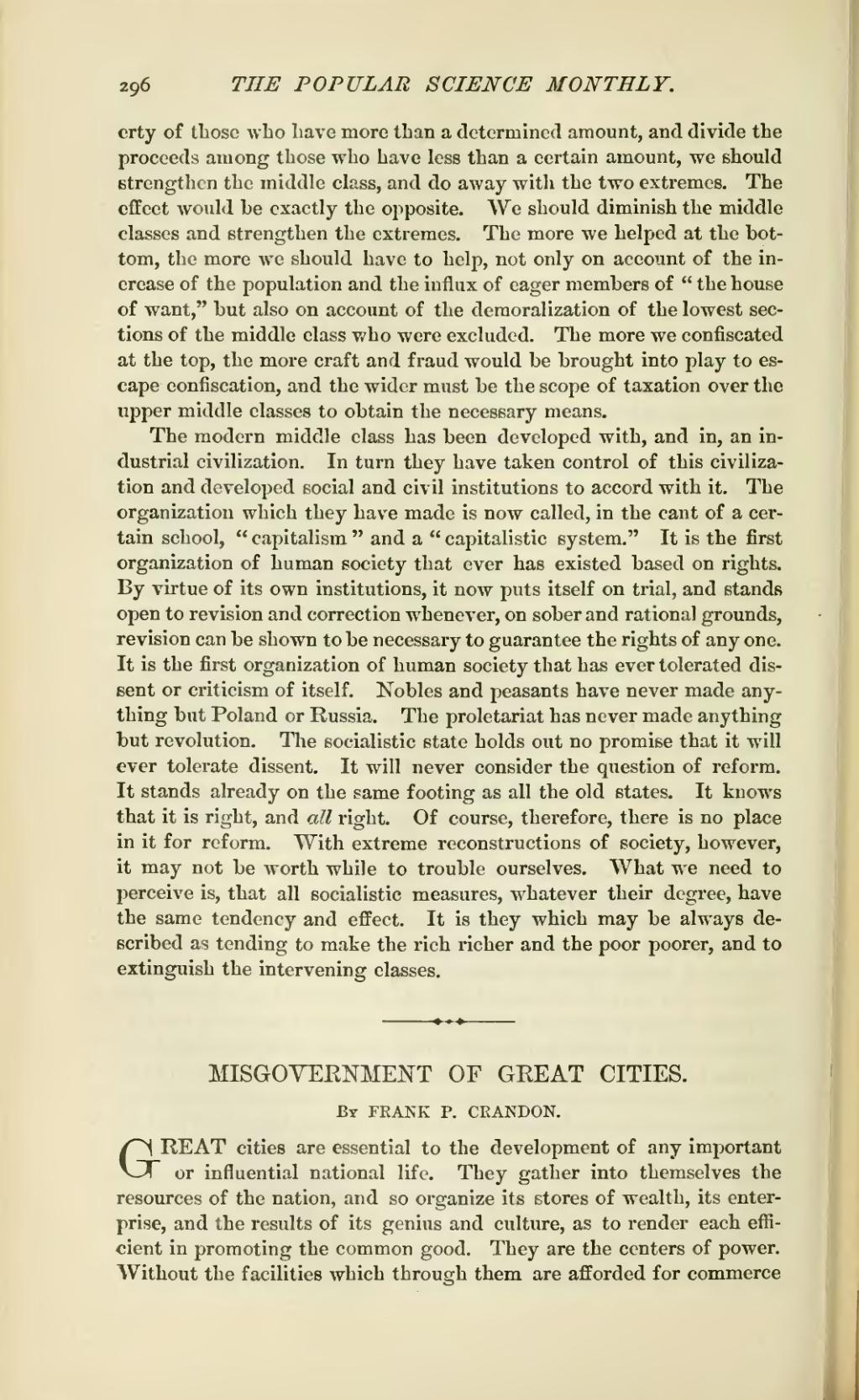property of those who have more than a determined amount, and divide the proceeds among those who have less than a certain amount, we should strengthen the middle class, and do away with the two extremes. The effect would be exactly the opposite. We should diminish the middle classes and strengthen the extremes. The more we helped at the bottom, the more we should have to help, not only on account of the increase of the population and the influx of eager members of "the house of want," but also on account of the demoralization of the lowest sections of the middle class who were excluded. The more we confiscated at the top, the more craft and fraud would be brought into play to escape confiscation, and the wider must be the scope of taxation over the upper middle classes to obtain the necessary means.
The modern middle class has been developed with, and in, an industrial civilization. In turn they have taken control of this civilization and developed social and civil institutions to accord with it. The organization which they have made is now called, in the cant of a certain school, "capitalism" and a "capitalistic system." It is the first organization of human society that ever has existed based on rights. By virtue of its own institutions, it now puts itself on trial and stands open to revision and correction whenever, on sober and rational grounds, revision can be shown to be necessary to guarantee the rights of any one. It is the first organization of human society that has ever tolerated dissent or criticism of itself. Nobles and peasants have never made anything but Poland and Russia. The proletariat has never made anything but revolution. The socialistic state holds out no promise that it will ever tolerate dissent. It will never consider the question of reform. It stands already on the same footing as all the old states. It knows that it is right, and all right. Of course, therefore, there is no place in it for reform. With extreme reconstructions of society, however, it may not be worth while to trouble ourselves; what we need to perceive is, that all socialistic measures, whatever their degree, have the same tendency and effect. It is they which may be always described as tending to make the rich richer and the poor poorer, and to extinguish the intervening classes.
| MISGOVERNMENT OF GREAT CITIES. |
By FRANK P. CRANDON.
GREAT cities are essential to the development of any important or influential national life. They gather into themselves the resources of the nation, and so organize its stores of wealth, its enterprise, and the results of its genius and culture, as to render each efficient in promoting the common good. They are the centers of power. Without the facilities which through them are afforded for commerce

